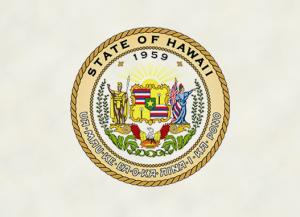Hawaii Extends HECO's Pilot Plan for Another Five Years

Finding that electric vehicles (EVs) clearly are consistent with the state's environmental, energy, and energy-efficiency policies and goals, the Hawaii Public Utilities Commission has agreed to an extension of a five-year pilot EV charging station program that otherwise would terminate on June 30, 2018. However, the commission declined to allow the trial run to continue another 10 years beyond the original sunset date. Instead, the commission approved an additional five years for the pilot, until June 30, 2023.
Back in 2013, the commission had authorized the three HECO Companies - Hawaiian Electric Company, Hawaii Electric Light Company, Inc., and Maui Electric Company, Ltd. - to implement their proposed EV pilot program. The utilities claimed that the information gleaned from the test run would provide them with the tools necessary to develop the requisite infrastructure for encouraging growth and ongoing interest in EV markets within the state.
Initially set to go through June 30, 2018, the HECO Companies had been permitted to (1) expand the availability of and access to EV charging stations throughout all three of the utilities' service territories for use by EV end users; and (2) promote the charging of EV batteries during off-peak periods through discounted time-of-use energy rates. The commission had concurred with the companies' assessment that EV markets would expand in direct correlation with their ability to successfully and actively develop, manage, and promote the pilot program's attributes and incentives.
Two new rate schedules were included in the EV pilot, one for privately owned charging stations and the other for public fast-charging facilities operated by the utilities within their service territories. The rates for both were established as promotional ones, such that they could be lower than otherwise applicable tariffs, depending on the volume of EV charging use.
The commission had acknowledged that inasmuch as the promotional rates may not fully recover total allocated fixed costs, they could result in subsidization by nonparticipating ratepayers. As a result, the commission had limited the number of participants and facilities as well as the duration of the pilot. It likewise had prohibited the pilot program rates from being applied to other uses.
The commission also attached various terms and conditions to the promotional rates. For instance, the commission conferred upon the utilities, in collaboration with the facility operator, the discretion to curtail EV charging service under certain specified circumstances. Despite the strictures placed on the pilot, the commission had stressed that to the extent a facility operator controls, operates, or manages plant or facilities used exclusively in charging or discharging an electric vehicle's battery, such an operator would not be treated as constituting a public utility.
In seeking commission authorization to continue the pilot, the HECO Companies reported that certain EV charging station hosts had expressed concern about there being only one year left in the pilot. The utilities asserted that an extension of the program would signal to the public the state's continued strong support for increasing the availability of EV charging infrastructure. The companies maintained as well that the EV pilot is consistent with Hawaii's ambitious goals for moving away from reliance on fossil fuels.
Although consenting to a fiveyear extension for the EV charging program, the commission refused to approve a 10-year extension. It said that it saw no need to decide now about continuing the plan that far into the future, especially since it was supposed to be a trial program. However, the HECO Companies were authorized to seek a further five-year extension if circumstances so warrant as the new sunset date approaches.
The commission related that more widespread availability of public charging stations obviously would spur interest in EVs and that the state will benefit from a transition away from gasoline-fueled motor vehicles to electric vehicles. To that end, the commission asserted that while EVs can be instrumental in reducing greenhouse gas emissions and improving air quality, they also can make a distinct contribution to the utilities' bottom lines, by providing a new stream of revenue to help make up for any sales lost to conservation and energy efficiency. Re Hawaiian Electric Co., Inc. et al., Docket No. 2016-0168, Decision & Order No. 34592, June 2, 2017 (Hawaii P.U.C.).



